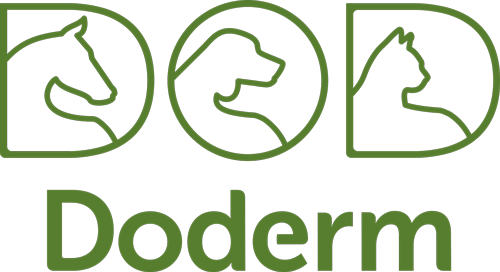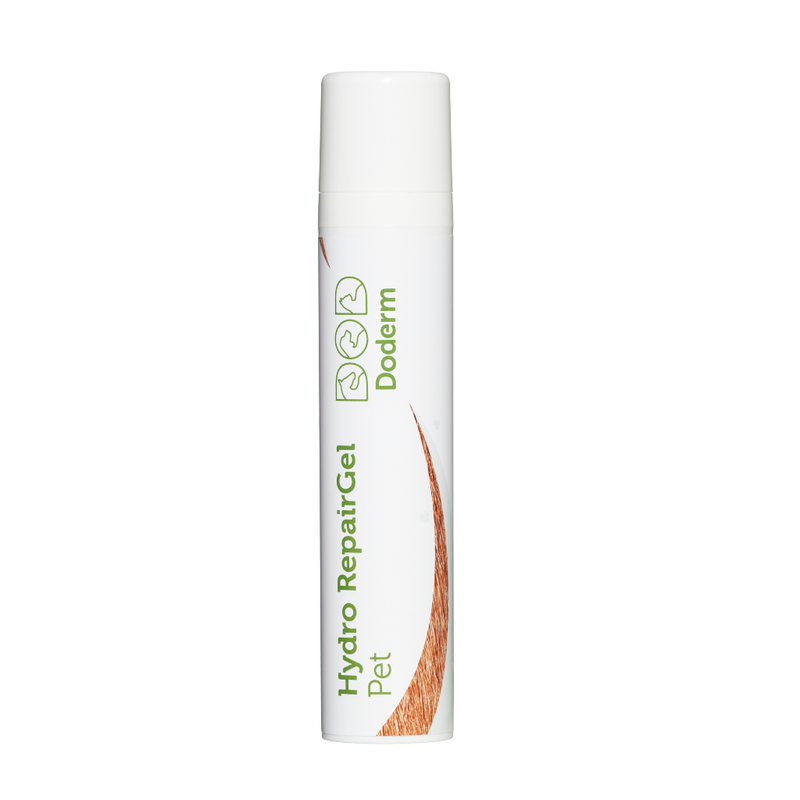Has your dog recently started to itch a lot, scratch constantly, lick his paws, and even has bald patches and hair loss? Then it could be that your dog has a food allergy or intolerance, especially if you have just switched to a different type of food. In this blog, we will go into more detail about what causes food allergies and intolerance, what symptoms can occur, and how you can treat them. Of course, these symptoms can also occur with other medical conditions, so it is always advisable to consult your vet first and clarify the cause. For more information on itching in dogs that is not related to a food allergy or intolerance, check out our other blog!

Symptoms of food allergy/intolerance in dogs.
The most common symptom of a food allergy in dogs is itching. Where the itching occurs can vary from dog to dog, but itching most commonly occurs on the head, ears, neck, armpits, stomach, groin, and between the toes and pads. Itching is obviously very uncomfortable and you will often see your dog scratching, with all the resulting consequences. Your dog's skin will be very irritated and bald patches may even appear. In addition to itching, your dog may also suffer from diarrhea or vomiting if he has a food allergy.

What causes the itching?
To explain why an allergic reaction to food causes itching, it's first important to understand how your dog's gut and skin work. Diet plays a big role in maintaining healthy gut flora, healthy skin, and a shiny coat.
skin and fur
The skin is made up of different protective layers consisting of skin cells, immune cells and the microbiome. Since the skin covers a large part of the body's surface, it is constantly exposed to possible allergens, toxins and pathogens. The skin is a major metabolic organ and requires proteins and other nutrients on a daily basis to be able to maintain its barrier function. The hair in your dog's coat is made up of 95% proteins. Dogs and cats need about 25-30% of the proteins from their diet for normal hair growth and a healthy coat. In addition to proteins, fatty acids such as linoleic acid are an important nutrient. Dogs and cats cannot produce this themselves. Linoleic acid is a component of fats in the skin that are involved in the formation of the upper layer of the skin and ensure that the skin barrier is maintained. Vitamins A, B and E also play a role in maintaining your dog's skin health.
The intestine
The intestine is where your dog's food is digested, meaning that the food that is ingested is broken down into small, absorbable molecules and transported through the intestinal wall throughout the body to where it is needed, including the skin. The origin of a food allergy or intolerance begins in the intestine. Certain proteins in your dog's food cause an allergic reaction or are difficult to digest. This leads to an imbalance in the intestine, which can ultimately lead to various complaints, including irritated and itchy skin. Exactly how this itching and irritated skin is caused depends on whether your dog has a food allergy or intolerance. This is explained in more detail below!
The difference between a food allergy and a food intolerance:
The terms food allergy and intolerance are often used interchangeably. However, there is a clear difference between a dog with a food allergy and a dog with a food intolerance. The difference lies in what happens in your dog's gut after eating foods he/she is sensitive to. A food allergy involves an allergic reaction to a specific protein in the food. This involves the immune system, which sees the "innocent" protein as an invader and attacks it. This immune system reaction releases chemicals, including histamine. Histamine causes blood vessels to dilate, causing the skin to turn red. It also increases the blood vessels' permeability to moisture, which can lead to fluid retention or edema in the skin and cause itching. Often, just a small amount of the protein is enough to trigger an allergic reaction. A food intolerance is caused by a lack of certain enzymes in the gut to break down these proteins. The result is that the food cannot be fully digested and absorbed. This leads to a nutrient deficiency in your dog and an imbalance in the intestinal microbiome. Since the necessary nutrients only reach the skin to a limited extent, the skin's microbiome is also disrupted. This can lead to irritation and itching on your dog's skin. In contrast to a food allergy, where even a small amount can cause discomfort, with a food intolerance it is often the case that the protein in small amounts does not necessarily cause immediate discomfort.

Doderm Hydro RepairGel
If you suspect your dog is suffering from a food allergy or intolerance, it is best to contact your veterinarian to find out which protein in your dog's diet is causing a reaction. To support your dog's itchy and irritated skin, you can apply our Doderm Hydro RepairGel twice a day. This has been specially developed for dog skin and supports the skin when the skin barrier is weakened. What makes our skin gel unique is that it contains filtered antibodies from cow colostrum, which naturally supports skin irritation. The Hydro RepairGel is 100% natural and does not contain antibiotics or corticosteroids. Would you like to learn more about how Doderm Hydro RepairGel can relieve your dog's itching? Read our page on how Doderm Hydro RepairGel works exactly. If you have any further questions, please do not hesitate to contact us. We are happy to advise you!



0 comments